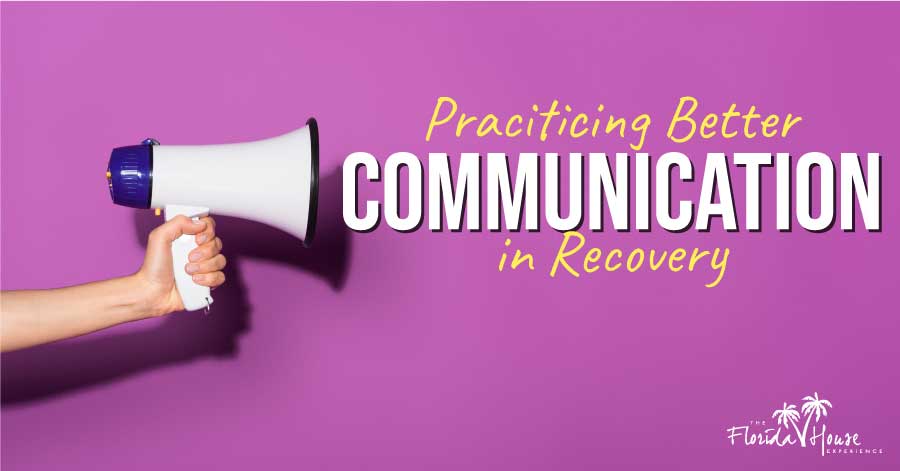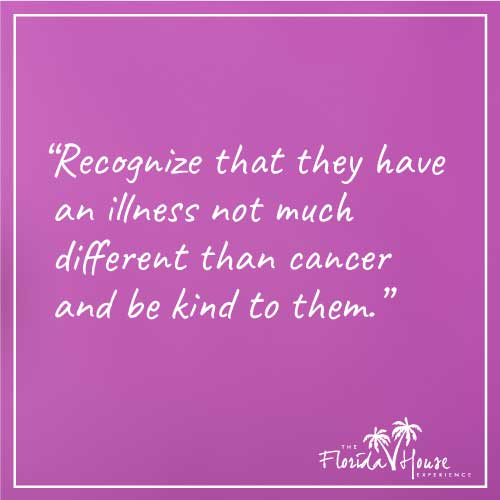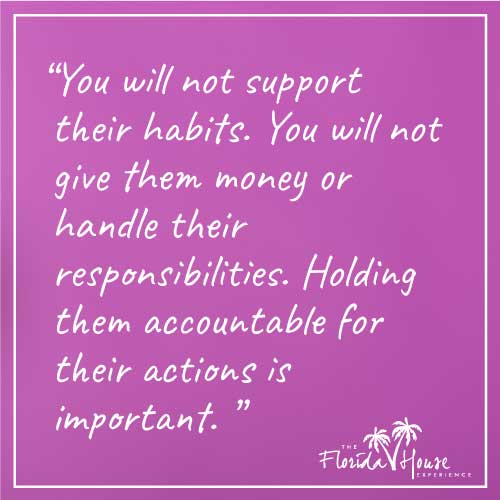
Communication is the foundation for success in any household. Yet, people struggling with substance abuse often feel they cannot talk to their loved ones. In some cases, they even turn to drugs or alcohol because they can’t express their feelings and thoughts. On the other hand, many loved ones don’t know how to communicate with an addict when he or she is at risk. Not doing so means allowing your loved one’s life to be on the line, but doing so may push them away.
How can we resolve these problems? It all comes down to improving communication in addiction recovery.
Communicating as a Person in Recovery
Between 40 and 60 percent of people in addiction treatment relapse within their first year, according to a study from JAMA. It is common, and yet it’s profoundly devastating when it happens. Many relapses are due to an inability reach out and get needed help as challenges, cravings, and mental health concerns build. Learning to communicate may help you avoid relapse.
There are several steps you can take to improve the way you communicate in addiction recovery.

#1: Gain One-on-One Support from Your Counselor
You should feel as if you can speak to your treatment specialist openly and without reservation. If you don’t have strong lines of communication with your counselor, seek out one you feel more comfortable with as a first step. As you work through recovery, triggers and problems will arise. Knowing your therapist is available to talk to you and work through these obstacles is essential.
#2: Listen to What Other People Are Saying
One of the best ways to improve communication skills in addiction recovery is to listen to other people. That means listening to what they’re saying, how they say it, and what they mean. When you practice listening to others express their feelings and thoughts, you gain better insight into how you can use those same methods to communicate your needs. Listen, for example, to others in your group sessions. How do they get their feelings out? How do they communicate what they are thinking? Use those skills to help yourself.
#3: It’s Okay to Express All Emotions
In some situations, individuals don’t want to communicate openly because they feel as though it’s wrong to express their emotions. Some think their loved ones will be upset or afraid if they talk about their addiction. Expressing anger, frustration and even overwhelming joy is important during recovery. When you allow yourself to feel those emotions again, you allow your mind to heal. Don’t be discouraged if you can’t communicate 100 percent clearly during these times either. Just let it all out.
 #4: Be Assertive and Dedicated
#4: Be Assertive and Dedicated
This is your life. This is your future. Having better communication skills sometimes starts with making the decision to leave past ways of talking to people behind. Instead, be honest and straightforward. It may seem harsh, but during this time of your life, you need to protect yourself from confusion. Be clear, open and assertive when expressing yourself or your needs. There’s no need to worry about manipulation here. Use good eye contact, hold your shoulders back and don’t be apologetic for feeling the way you do. There’s no need to be aggressive or demanding, but be clear.
#5: Give to Others, Too
Communication is a two-way street. As you learn how to communicate more clearly, be sure you apply those same methods to listening to others. Listen to the way your loved one speaks and what he or she feels. Knowing the value of expression, encourage others in your life to express themselves too. Don’t take it personally when they get angry.
How to Communicate with an Addict
Is your loved one battling addiction? Do you worry every single day about their life, health, and future? Communication at this point in your life is very important. Telling them how you feel is valuable, but you also need to set some boundaries. People with an addiction can be very manipulative and obsessive. It is not your job to feed into those emotions. Rather, consider these tips for communicating better with an addict.
 #1: Be Kind and Understanding
#1: Be Kind and Understanding
An addict no longer has physical control over his body’s need for alcohol or drugs. He or she cannot just stop. Recognizing this can alleviate a lot of frustration. The belief that they choose to use can be painful – you may even wonder how they can do this to you. Instead, let down your guard here. Recognize that they have an illness not much different than cancer and be kind to them.
#2: Set the Ground Rules Firmly
A very important step in communicating with an individual in addiction is creating ground rules. You will not support their habits. You will not give them money or handle their responsibilities. Holding them accountable for their actions is important. Providing a way to receive treatment is also important.
Your goal here should be to work closely with them to recognize it is time for a change. A key way to do this is through consistency. Once they know what you can do and what your reactions will be to their actions, they can see where their opportunities in treatment are.
 #3: Support Their Needs to Communicate in Their Own Way
#3: Support Their Needs to Communicate in Their Own Way
During counseling sessions, you and your loved one will learn to stop blaming each other. This means taking “I” out of the picture to some degree. When your loved one is going through addiction recovery, he or she will express intense emotions and thoughts. Anger, frustration, tears and even despair may surface. It may be up to you, then, to create an outlet. There should never be any abuse present – on either side. Yet, opening the door to be a safe place to vent can help your loved one to thrive.
Seeking Help Through Addiction Recovery
Addiction recovery is quite difficult for both those struggling with a substance abuse disorder and for their family. It becomes critical for all parties to play a role in family counseling. Learning about proper communication in addiction recovery is at the heart of moving forward. It’s also important to recognize that making the decision to improve communication can be life-changing for everyone in the home. Learning how to talk, instead of yell, and how to include every person’s needs in a conversation can help to create a strong, lasting bond that can change the course of your future. It becomes essential during the recovery process.
At the FHE Health, we provide individual and group therapy sessions to help those battling mental health and substance abuse disorders. A key component of this care is learning how to communicate. Enhancing your communication skills if you have an addiction or learning how to communicate with an addict if you are a loved one starts here. Contact us to learn more about how we can help you.
 #4: Be Assertive and Dedicated
#4: Be Assertive and Dedicated #1: Be Kind and Understanding
#1: Be Kind and Understanding #3: Support Their Needs to Communicate in Their Own Way
#3: Support Their Needs to Communicate in Their Own Way





